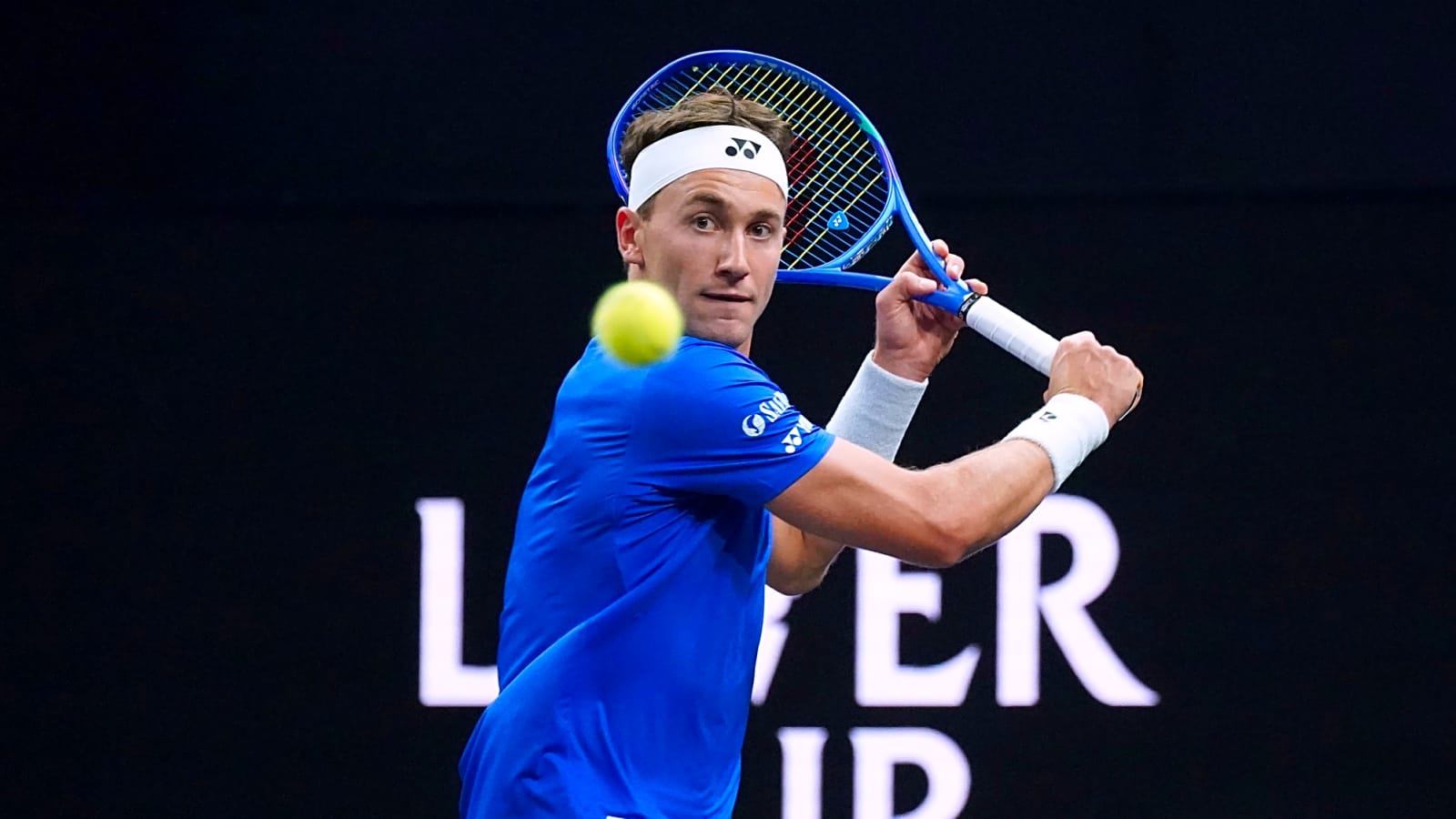
Look, we’ve all been here before. Another day, another tennis scheduling debate that has players pointing fingers faster than Djokovic can complain about crowd noise. This time, it’s Casper Ruud stepping into the ring to respond to Novak Djokovic’s rather blunt assessment of player unity—or lack thereof—when it comes to the grueling ATP calendar.
Ruud Acknowledges Djokovic’s Point But Hits Back With Reality Check
Let’s be honest here: when the 24-time Grand Slam champion speaks, people listen. Even when he’s basically telling his fellow players to stop whining and start organizing. Ruud, currently sitting at No. 12 in the ATP rankings, didn’t completely dismiss Djokovic‘s comments during a recent interview with Bolavip. But he did serve up some cold, hard truth about the financial realities that most players face.
“Of course, Novak has a point. He has more experience than any other player,” Ruud admitted, probably through gritted teeth. “Sure, you can pick and choose in a way, because we are not hired by the ATP, we are bosses of our own schedule.”
But here’s where it gets interesting. Ruud didn’t just roll over and agree with everything the Serbian legend had to say. Instead, he pulled back the curtain on something Djokovic might have forgotten during his climb to tennis immortality: money talks, and for most players, it’s doing most of the talking.
The Economic Reality That Djokovic Seems to Forget
Here’s the thing that’s almost comical about this whole situation. Djokovic, who’s made over $180 million in prize money alone (not counting endorsements that probably dwarf most countries’ GDP), is telling players they can just skip tournaments if they want to. Meanwhile, players like Ruud are looking at their bank accounts and their team’s salaries, thinking, “Easy for you to say, Novak.”
“What I criticized and talked about at the French Open was that there is an economic motivation to play and not skip any Masters 1000s with the bonus and everything,” Ruud explained. And honestly, this is where the rubber meets the road.
The ATP’s bonus pool system is like a carrot dangling in front of hungry horses. The top 30 players who earn the most ATP Rankings points at Masters 1000 events and the ATP Finals share a $21 million bonus pool. For someone like Ruud, who’s earned around $14 million in career prize money, that’s not chump change.
The Harsh Truth About Tennis Economics
Ruud didn’t mince words when he laid out the financial reality that many top players face: “If you are in the top 10, top 15, you make a lot of money, but you also spend a lot of money with all the expenses that you have, so you don’t want to miss out on any money if you don’t need to.”
This is the part that might make casual tennis fans spit out their coffee. These guys are making millions, and they’re worried about missing tournaments? But think about it for a second. When you’re traveling with a team of coaches, physios, and support staff for 11 months a year, those expenses add up faster than Alcaraz’s forehand speed.
Ruud Stands Firm: The Season Really Is Too Long
Despite acknowledging Djokovic’s perspective, Ruud wasn’t about to back down from his original stance. The Norwegian made it crystal clear that regardless of what the GOAT candidate thinks about player unity, the tennis calendar is still brutally long.
“I know that if you are not healthy or not eligible to play, you won’t be put in jail if you don’t play, but there is also an economic incentive to play, and some people care more about it than others. But I think the season is long,” Ruud stated.
And he’s not wrong. When you have mandatory tournaments stretching into November, with events like the Paris Masters happening so late in the season, it’s no wonder players are dropping like flies with injuries and exhaustion.
The Bigger Picture: It’s Not Just About Ruud vs. Djokovic
What’s fascinating about this whole debate is that it’s not just Ruud pushing back against the schedule. Carlos Alcaraz has been vocal about it, Iga Swiatek has complained, and even players like Alexander Zverev, Daniil Medvedev, and Stefanos Tsitsipas have joined the chorus of complaints.
But here’s where Djokovic might actually have a point, even if his delivery was about as subtle as a serve to the face. The players really aren’t united when it comes to actually doing something about the schedule. They complain in press conferences, then show up to exhibition matches during their supposed “rest” periods. It’s like complaining about being overworked while picking up overtime shifts.
The Exhibition Problem That Djokovic Called Out
Djokovic wasn’t entirely wrong when he pointed out the contradiction of players complaining about scheduling while simultaneously signing up for exhibitions. “But then there are exhibitions as well that players are signing up for, so it’s a little bit contradictory,” he noted.
It’s a fair point that probably stung a bit. When players are griping about mandatory tournaments, then jetting off to play in lucrative exhibitions during what should be their rest periods, it does send mixed messages about just how exhausted they really are.
What This Means for the Future of Tennis Scheduling
Ruud concluded his response by hinting at some personal changes he plans to make: “Going forward I will plan the schedule a bit differently, maybe skipping a few events here and there.”
This might be the most sensible thing anyone has said in this entire debate. Instead of waiting for the ATP to magically fix everything, players like Ruud are starting to take control of their own schedules. It’s almost like they’re realizing they actually are, as Ruud put it, “bosses of our own schedule.”
The truth is, both Djokovic and Ruud have valid points. The schedule is too demanding, and players aren’t effectively organizing to change it. But when you’re looking at your bank account and thinking about your team’s salaries, it’s not always as simple as just skipping tournaments because you’re tired.
At the end of the day, this scheduling debate isn’t going away anytime soon. But at least we’re getting some honest conversations about the realities of professional tennis, even if they come with a side of sarcasm and financial anxiety.
More must-reads:
- Tennis stars show hypocrisy by accepting Saudi money
- MLB playoff takeaways: Blue Jays dominate Mariners to cut series deficit
- The '2024 TD catch leaders by team' quiz
Breaking News
Trending News
Customize Your Newsletter
 +
+
Get the latest news and rumors, customized to your favorite sports and teams. Emailed daily. Always free!








